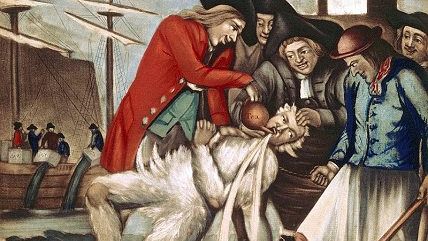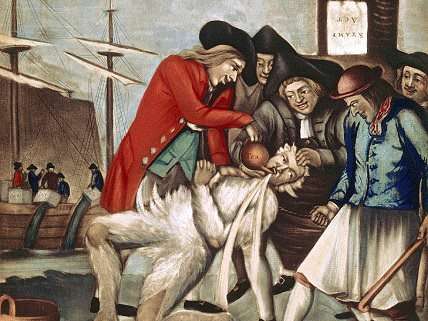Baylen Linnekin: The Bill of Rights Was About Food Freedom


On September 25, 1789—exactly 225 years ago today—Congress passed the ten amendments that make up the Bill of Rights.
Yes, the first ten amendments to the U.S. Constitution—the ones that protect everything from free speech to due process—originated as a series of bills in Congress. They were drafted by future president James Madison, at the time a congressman from Virginia. Madison also wrote the text of the Constitution, which had established a system of limited government but hadn't explicitly protected individual rights. With the Bill of Rights, it now did both.
What was the impetus for these revolutionary changes? Baylen Linnekin argues that one key element was spiraling British attacks on colonists' "food freedom."
Attacks on food freedom incensed the Founding Fathers. The list of grievances Thomas Jefferson articulates in the Declaration of Independence includes rebukes of King George for permitting British troops to "eat out the[] substance" of colonists' cupboards and for trampling on colonists' fishing rights.


Show Comments (0)